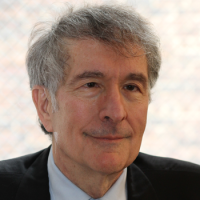
Howard Gardner on Good Work for Lawyers
PUBLISHED:AUTHORS: Howard Garnder
Resource Summary
Article Sample via Harvard Law School's periodical The Practice.
Article Sample
David B. Wilkins: Your recent work focuses heavily on conceptions of “the good.” So I’d like to begin with the most basic question that you address in your work: Who is the “good worker,” and what are the profiles of “the good” that you’ve been writing about?
Howard Gardner: Let’s start with the good professional—the good worker. At the Good Project, we’ve looked at nine different professions, and we’ve conducted and analyzed close to 1,500 interviews. Over a 10-year period we determined that being a good worker had three components—the Three Es: Excellence, Engagement, andEthics. We produced a visual of the three intertwined Es and somewhat whimsically dubbed it the “Triple Helix” or “ENA.” If you want to be a good worker, you can’t just be excellent, you can’t just be engaged, and you can’t just be ethical. You need to have those intertwined strands of ENA.

The Triple Helix of being a good worker.
Let’s take the law as an example. You could be very well informed and an expert (hence, excellent), but you could be bored or alienated (hence, disengaged). Lawyers report more unhappiness—including depression—than almost any other profession, so clearly many lawyers are not fully engaged. As we well know from the press, lots of lawyers skate on thin ethical ice and test how far they can push limits before falling into a chilly pond! On the other hand, you are also going to have people who are highly ethical but aren’t up-to-date. So the Triple Helix—the achievement of all three Es—is aspirational.
This is exactly where John Bliss’s work (see “The Professional Identity Formation of Lawyers”) is so illuminating, because you see these strands competing with one another. Nobody would say that corporate lawyers don’t try to achieve excellence, but often engagement is more a role they seek to fill rather than a genuine intrinsic enthusiasm about the work they perform every day. I would add, however, that I don’t think any branch of law has a corner on being ethical or on testing limits.
We would all like the professionals with whom we are involved to be excellent and engaged and ethical. That’s what we’d like of our doctor, our accountant, the architect of our home. And most of us would like to realize that combination in our own work lives. When you look at the tensions experienced by “drifters” (see “The Professional Identity Formation of Lawyers”), they prefer to think of themselves in one way—doing God’s work—but feel they’re being pulled in ways that don’t make them happy. That pull risks making them less engaged. They also worry that when they have to look in the “ethical looking glass” or the “moral mirror,” they’re not going to be happy with what they see.
But it’s complicated. You’ve got people who do public interest law who are very unethical. You’ve got people who are doing high-end corporate work and are very ethical. It’s not a necessary correlation or lack of correlation, but it’s probably not random either.
Download the full article in the Resource Links section to the right.



-
-
-
Support PZ's Reach